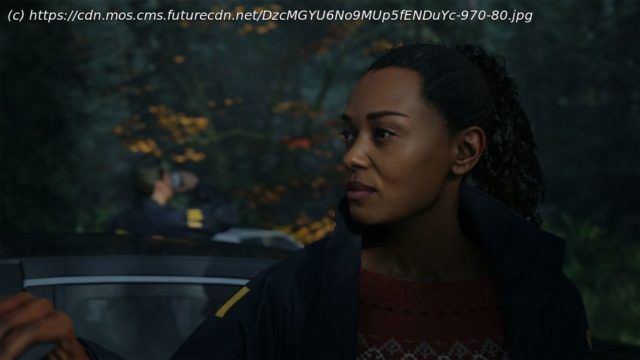When it comes to writing in Remedy games, what matters isn’t the story itself, but rather how the story is told.
For Remedy, it’s never been about plot arc. The tragically broken lives of Max Payne, Alan Wake and Jesse Faden (Control) make for compelling narratives in their respective games, but it’s not the plotting of these stories themselves that discerns Remedy from the pack. And after Alan Wake 2’s extended reveal at Summer Games Fest 2023, I don’t think it’ll be the events of its story that we remember it for. Instead, as always with Remedy, we’ll remember the offbeat, esoteric and masterful methods through which it’s told.
Let’s take Max Payne as an example. Its plotting works really well to motor along a revenge story and motivates you to keep shooting your way through tenements full of Joe Pesci-alikes. NYPD cop turned DEA agent Max Payne sees his wife and kid killed by armed drug addicts looking for their fix of the fictional drug Valkyr, infiltrates the crime syndicate supplying the drug, is then framed for murder and left without any friends on either side of the law. Left with nothing to lose, he hunts down underbosses, brokers deals with rival crims, and eventually tracks down the mob boss who ruined his life, learning along the way that Valkyr was actually part of a military testing program.
Except, I don’t remember much of that. I had to Google it. What I remember is entering a room and finding a TV playing some creepy show where the main character meets his clone, and that clone tells him that ‘mirrors are more fun than television’. I remember the fantastically evocative graphic novel panels and voiceover, which were in fact a cost-saving measure because Remedy didn’t have the budget for fancy FMV sequences. And for better or worse, which is a polite way of saying ‘definitely for worse’, I remember the blood mazes in Max’s nightmare sequences.
I remember them, because they were all narrative delivery methods that games just weren’t doing in 2001. It was a melange of Twin Peaks’ surrealism, often with direct nods to David Lynch like the fact the aforementioned twin spoke backwards like Michael J. Anderson’s character in Twin Peaks, and hard-boiled action movie, with occasional non-sequiturs into dark comedy. If Max Payne hadn’t been so well endowed with tone, atmosphere, and character, we probably wouldn’t remember its plot.






